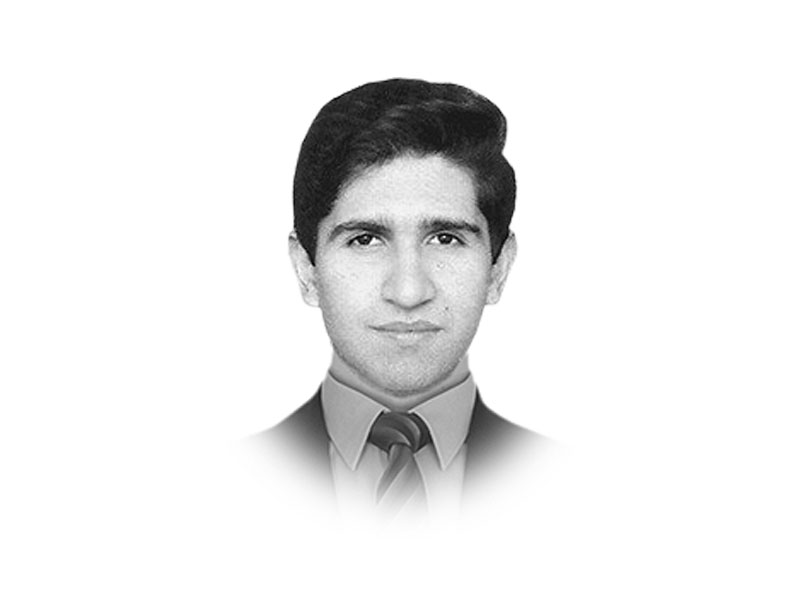
As society is always evolving, a security doctrine also changes with how the society in a state views its relationship with the world, as well as societal roles within the society itself. These ideas shape how the society views itself vis a vis the rest of the world, which in turn shapes threat perceptions. Put simply, the way you view yourself is also the way you will view others around you. For instance, Kal Holsti has clarified roles for nations' perceptions of the others, and has come up with 17 of these roles. These role definitions classify the state as thinking of itself in the role of an ally, imperialist, protector, etc. All of these roles are oriented towards a nation's conception of itself through connectivity to other states. Richard Herrmann and Michael Fischerkeller have also elucidated such roles, these being of an enemy, ally, degenerate, imperialist and colony, which are also externally oriented. These roles change over time with changes in the external and internal environment. For instance, with the collapse of the Soviet Union, the US had to radically realign its roles in the world, which reduced its orientation of a helper to more of an imperialist.
Hegemonic postures will tend to not only give a global orientation, but will also intentionally diffuse the context of the enemy. Thus, instead of a clearly identifiable enemy, esoteric threats such as chaos, 'terror', instability, etc. will become dominant themes — as then president George Bush articulated the US strategy even before the Persian Gulf War, “as the world's most powerful democracy, we are inescapably the leader, the connecting link in a global alliance of democracies. The pivotal responsibility for ensuring stability of the international balance remains ours." Since a hegemonial state usually has more than one such indistinct enemy, it will also try to keep its options open by entering into alliances of convenience, which are easily retractable. Hegemons and ideational states share the ideational orientation, which concentrates on the values that a nation cultivates, and perceives threats to these values from enemies who are opposed to such ideals. Such states will tend to try to dominate or influence world to bear weight for carrying out their agendas of ideational protection. The Cold War was a classic example of this ideational environment, where rivals considered each other's ideologies hostile and sought to not only influence world opinion towards their own norms, but also to pressurise global bodes to ostracise the others’ views. However, ideational values are by no means idealistic; states will pay lip service to their freedoms while tacitly or implicitly encouraging curbing of the same in other areas if it suits the balance of power. The US is a classic example as it clearly supported authoritarian regimes during the Cold War to serve its balance of power orientation.
Historically, militaries all over the world have not been able to prepare an ideally balanced force, which could deal with all sorts of uncertainties and enemies. This is not due to flawed planning, but due to the expansive range of uncertainties that one faces while predicting the future. Paul Kennedy reminds us, again with the US in mind: "Since it is not humanly possible to prepare for everything that may happen in the unpredictable and turbulent world of the early 21st century, the task is to structure the armed forces and the economy and society upon which they rest, to be in a good position to meet contingencies".
Published in The Express Tribune, April 7th, 2013.
COMMENTS (14)
Comments are moderated and generally will be posted if they are on-topic and not abusive.
For more information, please see our Comments FAQ


-(14)1720679028-0/(image-blakelively-on-Instagram)-(14)1720679028-0-165x106.webp)

1731028448-0/Untitled-design-(37)1731028448-0-165x106.webp)









Hegemons and ideational states share the ideational orientation, which concentrates on the values that a nation cultivates, and perceives threats to these values from enemies who are opposed to such ideals. Such states will tend to try to dominate or influence world to bear weight for carrying out their agendas of ideational protection.
This is what is happening in Afghanistan. The great Hegemon, USA and the great ideational state i.e. the Islamic Republic of Pakistan are in a contest trying to dominate or influence world to bear weight for carrying out their agendas of ideational protection.
All is perfectly clear now.
And here we have Mr.Kiyani who is concentrating more on American Enemies rather than on our own enemies !
If communism was allowed to prevail in Afghanistan for a time, it was the only force that could have ended the monopoly of power in the hands of the tribal lords. The Afghan masses would have been better of today. These regional absolute monarchs preserve their monopoly of power for their own interest and against the the interest of the people over which they rule. Taliban succeeded in degrading tribal power, but to no avail, in so far as the people are concerned. They imposed a 12th century autocratic theocracy, out of step and out of place in the modern world of technology and information revolution. There are direct and important lessons to be learned for Pakistan from the Afghan experience. Unless the status quo of participation of tribal lords in democratic process is ended, Pakistan will always have far too many wolves in sheep's clothes, for democracy to take root and succeed in serving the people. Second lesson Pakistan must learn from is the rule of religion by Taliban. It is divisive, discriminatory, intolerant, self-righteous, arrogant, retrograde, ignorant, inflexible, autocratic and self defeating, because it is completely averse to the concept, power and role of modernity in today's society. Just to make it clear, modernity is not the sole monopoly of the west. Those of religious kind in Pakistan are incapable of discerning the idea of modernity as anything other than what is western. .
@amoghavarsha.ii: Pakistan,unfortunstely lives in a neighborhood with a giant looking India and China next door and a shatter zone of Afghanistan on the west. Pakistan never invited the Soviets to come and sit in Afghanustan,it is easier to comment with hindsight of what wass good or bad. Pakistan's security doctrine is a product of its environment and not a matter of choice. Many in India have a steriotype view of Pakistan'security doctrine, in fact South Asia iscgeographically Indocentric,the pastvhistory of the region is not very positive,India dismembered Pakistan on first opportunity provided by environment,absorbed Sikkim,made Bhutan an Indian protectorate,intervened in Srilanka and even Maldives and keeps bullying Bangladesh. May be if India was Magnanimous,South Asia could be a Super Power.
Zaidi Sb, another good article. Would be interested in reading an article by you on what Pakistan's CT Strategy should look like in plain English for our new NACTA Board to look to implement. The whole country is talking about the need for a strategy to fight terrorism, insurgency and sectarianism but no one know what it looks like.
Pakistani author writes a paper on Security Doctrine and not one reference to Pakistan?
@author & moderator, Thankyou for publishing my comments, I think first time my three comments published in less than 5min of sending. I think I am getting the idea how to make my comment publish.
@author, as I said earlier, your article has really been confusing and jumping from topic to topic and finally making reader to arrive at US Hegmony. My simple question is why is it that Pakistan and other likes feel US has Hegmonistic policies, were as India, Brazil etc., don't see them like that or rather ignore them. Fristly pakistan's security doctrine is highly meshed up and tilted in favour of US support & sustainance. No security doctrine can be independent & viable without a economic self sustainance. Pakistan feels most insecure because of its military's wrong doctrines and wrong priorities. I feel the biggest mistake Pakistan miliatry & people did was getting themselves involved in Afghan war against soviets. Come what may, If you had rejected the US/NATO/WEST at that time, this misery would have not been so much and so long. Past is Past. Now Pakistan and its military's single line focus should be to develope economically. India and Indains first wanted Economic Independence, that is the reason we did not develop our military to be equal to 3times big china, with which we had a bitter war too.
If we are Independent Economically, nobody can stop us from defending ourselves or spending OUR MONEY to protect our selves.
Today India does not fear china's military might, but Chinas economic might is concern(not fear) our goal is to protect our interests(economoic) that is the focus of military doctrine now.
For your kind information, US shows its military might to protect its Intersts(economic). Not its Hegmonistic attitude/nature.
@ author, I like to read your articles, because I find you are young and would have new Ideas for pakistan, every time I read I find that you should be more focussed and imporve a lot. I was hoping you would be systematic and not jump from one subject to the other.
I am writing this after reading first three lines, from security doctrine you jumped to intensity to counter insurgency. I continued....
oh...your are jumping from one to another, I will continue reading..
Zaidi sahib could have made it more simple for the audience in Pakistan,one important factor he has missed out the new chaos doctrine and how it is affecting security of small and medium sized states,specially where democracy has not gained proper moorings.What we see in the greater middle east is the inability of states built around outdated models of modern monarchy to even understand the new security challenges.US is a global hegemon and we in Pakistan should be more worried on developping a security apparatus which can fight the NON KINETIC WAR within a new world of chaos.
I think your last paragraph sums up it all: A nation's perception and reaction to any threat is determined & capped by its internal structure.
And your point is...?